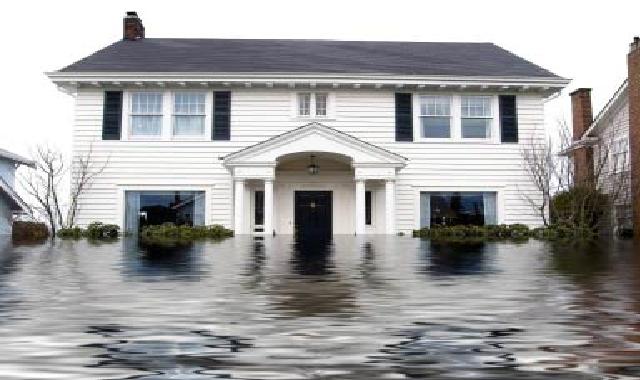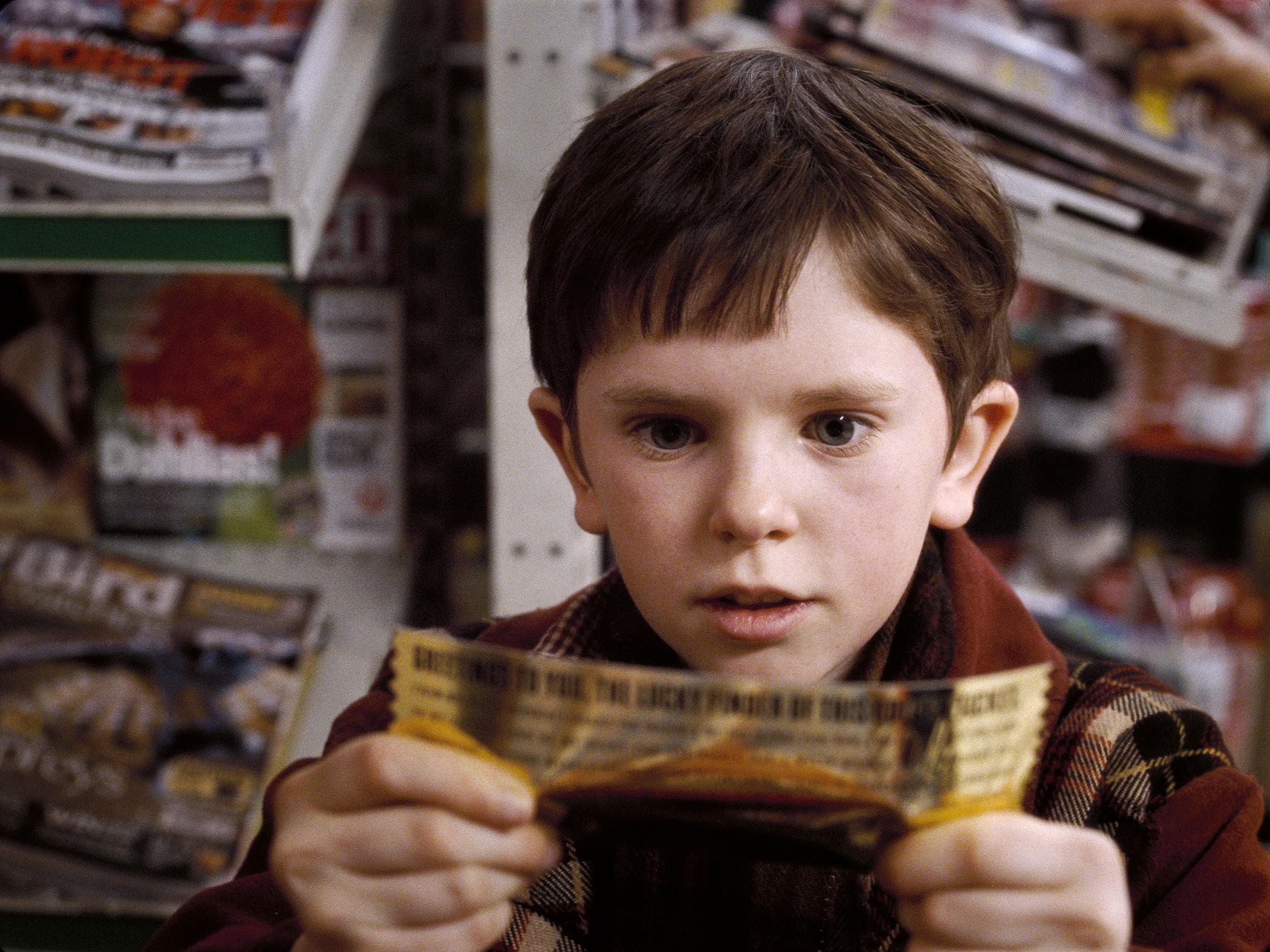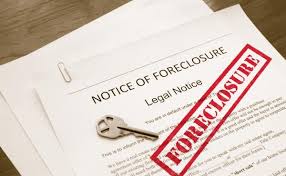On the 2008 mortgage crisis, from my perspective
Ok friends, are you ready? I’m about to piss you off.
Contrary to the dominant journalistic narrative of the 2008 Crisis – that greedy bankers and their Wall Street enablers tricked the poor and gullible into predatory loans on their homes which led to foreclosures and economic misery – I think borrowers mostly caused the mortgage crisis.

Obviously this is a deeply unpopular thing to say, and cuts against the grain of “little guy = good” and “big bank = bad,” and it appears at first blush that I’m blaming the victim. I sympathize with homeowners who lost their jobs and then possibly their homes and clearly many were victims of forces beyond their control. But I’m still gonna piss you off.
Borrower as “innocent victim” myth
I really just mean to point out that a whole lot of borrowers were not innocent victims, but rather perpetrators of mortgage fraud. Many of these folks were investors, speculators, flippers, and just Hail-Mary passers hoping short-term real estate inflation could cover their terrible financial positions.
I mean to call out the people who knew they didn’t really have a chance at paying back their loans under ordinary circumstances, except maybe extraordinary price appreciation. I mean people who got “no income, no asset” loans knowing that income and asset disclosure would tank their chance to borrow a lot of money. I mean people who, with almost no money down, bought an option to ride the upside of real estate appreciation but who risked no real equity when the market went sideways and then south.
I don’t believe I’m an extremist in this view, I am a realist.
Bankers getting stoopid
Yes, mortgage underwriting standards slipped from “loose” to “stoopid” somewhere between 2004 and 2007, with ARMS, sub-prime loans, interest-only loans, and liar-loans expanding from niche products for niche situations to dominant products crowding out sensible mortgage loans, eventually clogging up the sewage pipelines of global finance. One of my earliest podcast interviews for this site was with a mortgage underwriter who got out of the business just as the ridiculousness started to take over.
But despite this, and contrary to the dominant journalistic narrative, banks do not make money when they lend money to people who will not, or cannot, pay them back. Lending to a borrower who cannot pay back the loan is not a profitable strategy. I’ve never met a banker who wanted to take back someone’s home. It’s a ticket straight to financial destruction for the bank.[1]
Yes, bankers are profit-oriented, and yes they got briefly stoopid, but banks generally get only a few years to make these kinds of terrible underwriting and financial modeling decisions, after which, the inexorable gravity of finance pulls them down, punishes them, and makes them pay.[2]
Borrowers too acted from a combination of greed and stupidity, taking out loans they should never have taken.
Homeownership is not a fundamental right of citizenship. It’s a choice that’s right for some people, but financially catastrophic for others, because home ownership is risky. A mortgage contract confers opportunity, but also demands responsibility.
And yes, I get it, it’s harder to blame the individual borrower who lost her job, her credit and then her home, than it is to blame the overpaid financiers and their banking institutions. Obviously the underwater and foreclosed borrower is a far more sympathetic character than the slick mortgage bond investor or the bank. But just because we feel for the little guy or gal doesn’t mean we should misunderstand shared responsibility for the mortgage crisis of 2008.
I understand better than most the terrible mistakes and greed of Wall Street. I was there, and I’ve written about some of it here. I’ll be the first to say I think the ongoing coddling of Wall Street and unsolved TBTF problem remains a black mark on the Obama administration. But if we don’t acknowledge the shared responsibility of predatory borrowers then we don’t learn the right lessons from the mortgage crisis.
Although I disagree with much of his politics, Edward Conard in his Unintended Consequences debunks – better than anything else I’ve read – the flawed journalistic narrative on the mortgage crisis of 2008.
I know I’m going to piss people off when I write this, because it’s impolite to lay responsibility on the individual homeowner who had the most to lose.
Selling mortgages from bank to bank
What about the fact that mortgages get sold and reassigned to banks that didn’t even underwrite the loans?
Recently a neighbor told me a story – with a straight face – that an acquaintance of hers received notice from a bank of imminent foreclosure on her house. The acquaintance claimed to have made all of her mortgage payments, but the mortgage had been sold to another bank, which hadn’t received her monthly payments. My neighbor was shocked about the mortgage having been sold to another bank, and wholly believed her friend would lose her home.
I remained outwardly sympathetic and pleasant, but let me tell you what I was really thinking.
To dispose of the last point first, the fact that the mortgage was sold to another bank is irrelevant. You know why? Because practically every single mortgage in this country is sold from one bank to another.
Unless you got a mortgage from one of four banks – Wells Fargo, Bank of America, Citibank, or JP Morgan Chase – you can be absolutely certain your mortgage will either be sold or serviced by a different bank.[3] Look at your mortgage statements. Is that the bank that gave you your mortgage? Probably not.
But but but – I hear the objections to the original point – what about all those mortgage bank robo-signers in the foreclosure mills? What about foreclosure mistakes, in which people lose their homes due to bank error?
Ah, yes, the myth of foreclosure mistakes.
The myth of mistaken foreclosure
I just do not believe in the myth of mistaken foreclosure.
I say this with confidence for a couple of reasons.
Through my business I’ve invested in many mortgages myself, a great number of which became delinquent.[4]
It takes between 6 months and a few years to enforce unpaid debts. Thousands of dollars in attorney fees are followed by months of notices, certified mail, and disclosures to homeowners in arrears. Unlike a Hobbesian life, mortgage foreclosure is nasty, brutish, and long. If the lender pressing foreclosure misses any steps along the way, you pass directly to Go, do not collect $200, and the foreclosure process can be held up indefinitely.
Look, we live in an extremely litigious society. There are thousands of consumer rights’ lawyers ready to take on a big juicy target like a bank for mistakenly foreclosing on a homeowner who has faithfully made mortgage payments but who lost his home due to bank error. Any homeowner who got mistakenly foreclosed upon by a bank is not a homeless loser but holds a golden ticket to financial paradise.

A mistaken foreclosure is a Golden Ticket for the homeowner?
Has this ex-banker forgotten his meds?
No.
If Bankers-Anonymous readers can refer me to a homeowner tricked out of her home, or mistakenly foreclosed upon who remained current on her mortgage,[5] I will find a lawyer who will win millions of dollars for that homeowner from the bank. If you can find me more than one instance nationwide – let’s just say a few dozen – we will all retire just on the referral fees to the class action lawyers alone.
How much can we make the banks pay? $100 million? $200 million? Maybe more. Some percentage of that would be fine by me.
But it’s never going to happen, because it’s a big fat myth.
Mortgage settlements with big banks
But wait, what about the hundreds of millions of dollars in penalties Wall Street banks have paid in the past 5 years to attorneys general for mortgage underwriting errors or fraud? Doesn’t that prove Wall Street and the mortgage banks were cheating and predatory?
No. It proves only that securities firms cannot afford to get crossways with securities regulators. Not a single mortgage case filed by the government against the big banks in the past 5 years has ever gone to trial.
The banks’ attorneys immediately ask for a settlement, put aside a big chunk of money, and try to move on.
Being sued by the government for securities fraud is such a business-quashing situation that no bank can remain there for long. Their lawyers just reach for the corporate wallet and ask the regulators what it’s going to take, and then they move on.
Conclusion
I’m not trying to be the mean jerk here by blaming the borrowers. Clearly homeowners suffered, and they suffered individually more than the bankers. But we need a clearer-headed analysis of the cause of the mortgage crisis – or at least a more balanced view of where to place the blame.[6]
I think we’ve bought into an imbalanced journalistic narrative, and we draw the wrong lessons for the future as a result.
Postscript to the Conclusion
On this same issue of ‘who to blame?’ the mortgage crisis strongly resembles the internet crash of 2000 and then-Attorney General Spitzer’s campaign to blame internet analysts. As always, Michael Lewis said it best, in this classic New York Times Magazine article. If you choose the politically convenient target – mean, nasty, banks and their forked-tongue research analysts – rather than the fact that investors are greedy, working with imperfect information, and should be held responsible for their own investment decisions, then you learn the wrong lessons. And you end up with a bullying hypocrite for a New York Governor, among other consequences.[7]
In the case of the mortgage crisis, exclusively blaming the banks for loose lending standards leads to, among other things:
- Tightened credit restrictions, especially for the poor
- Absolving homeowners and borrowers for the consequences of their own financial decisions
- Punishing individuals who actually stayed current on their underwater mortgages instead of walking away
So let’s consider the whole picture of responsibility, however unpalatable it may seem.
Also, see previous posts on Mortgages:
Part I – I refinanced my mortgage and today I’m a Golden God
Part II – Should I pay my mortgage early?
Part III – Why are 15-year mortgages cheaper than 30-year mortgages?
Part IV – What are Mortgage Points? Are they good, bad or indifferent?
Part V – Is mortgage debt ‘good debt’ A dangerous drug? Or Both?
Part VI – Mortgage bond creation on Wall Street
Part VII – Mortgage Derivatives
[1] When they don’t get paid back, banks have to start a foreclosure process, which is long, costly, and uncertain. Then when they do obtain the property, more often than not the bank sells it for a loss. It’s a terrible situation. Banks don’t like to own properties. They want Tuppence.
[2] And then they call up daddy Paulson, and say ‘Daddy, start writing checks!’ Yes, I realize banks got unfairly bailed out. That too drives me nuts. But I’m talking right now about the causes of the crisis, not the consequences.
[3] And even if you did get your mortgage underwritten by one of those four, it’s highly likely your mortgage will be reassigned into a mortgage bond structure, often with a different servicer. For more on the way the mortgage bond sausage is made, I recommend this primer.
[4] In a related piece of news, I’m no longer a hedge fund manager. Rather, I’m stacking mad chips as a blogger.
[5] “Remained current on her mortgage” is the key clause of this whole thing. I define a foreclosure mistake as a situation in which the homeowner who actually paid the mortgage, but lost the home. Yes, lots of people lost their home after not paying on the mortgage, and that’s tragic all around. But that’s not the bank taking advantage of people, that’s the bank following through on its signed, written contract, which contract has been thrown into default for non-payment.
[6] On this same issue of ‘who to blame?’ the mortgage crisis strongly resembles the internet crash of 2000 and then-Attorney General Spitzer’s campaign to blame internet analysts. As always, Michael Lewis said it best, in this classic New York Times Magazine article. If you choose the politically convenient target – mean banks and their forked tongue research analysts – rather than the fact that investors are greedy and working with imperfect information and should be held responsible for their own investment decisions, then you learn the wrong lessons. And you end up with a bullying hypocrite for a New York Governor, among other consequences.
[7] And then after he’s exposed for what he is, you get him back, as Comptroller of New York City.
Post read (14279) times.






8 Replies to “Mortgages Part VIII – The Cause of the 2008 Crisis”
I’ll join the firing line with you and suggest that a lot of the blame is to be placed on real estate agents that never truly vetted their clients or had serious discussions (or understanding) about home ownership and what a mortgage and property taxes were and how they relate to your true income and life plan. Instead it became a “jump in the car and let’s drive until you can buy’ situation with the builders’ sales reps taking over and selling the American Dream. Not me and not my business model.
Curtis – Thanks for your comment. I agree with you, in such a colossal clusterfck like 2008 there’s a lot of blame to go around. Like greedy short-terming mortgage brokers and underwriters, real estate agents presumably also let their lesser selves take over their good judgment.
At least we’ve evolved in our understanding of what happened that we’ve been able to go beyond blaming the CRA, although that, too, is part of the narrative.
A crisis of this magnitude requires malfunction of multiple parts of the machinery. Bad loans require both “bad” borrowers and “bad” lenders. I use “bad” here in both the ethical and the qualitative senses. If you offer me a loan that you know I can’t afford with the intention of flipping it to some unsuspecting putz you’re a bad/unethical lender. But you can’t make that loan unless I am either greedy and unethical myself or I have unrealistic expectations of being able to make the payments or perhaps flipping the house. In the latter case I’m not evil, I’m ignorant.
In defense of the borrowers, I believe most of them fell into the “ignorant” category. It’s the lenders who do this for a living and who were more likely to know what they were doing was unethical. If I come to you for a loan and it’s obvious I don’t qualify but you figure out a way to make it happen, who should have known better – the guy who buys a house 3 times in his lifetime or the guy who does it for a living?
There were also plenty of regular people just looking to buy a house who were caught up like turtles in a tuna net. They were unfortunate enough to decide to buy a house during a time of inflated prices and then when the economy went bust lost their jobs – a double whammy.
You can’t seriously expect us to believe that people like Angelo Mozilo and Franklin Raines were choir boys.
I still remember that idiot Maxine Waters during the 2004 hearings on Franklin Raines extolling the virtues of the “creative” originators who came up with desktop underwriting and no-money-down loans: https://www.youtube.com/watch?v=QlJ032EQIgQ. The whole video is worth watching (if for nothing else but the pathetic playing of the race card to defend Raines) but her astonishingly naive remarks begin around 4:40.
Todd, agreed there’s lots of blame to go all around.
And Maxine Waters’ likeness should be engraved on the Mount Rushmore of hypocritical, unhelpful, unreflective Congressional leaders.
Maxine is an idiot but to really screw things up you needed the likes of Barney Frank. He helped cause the mess and then he “helped” clean it up. I’m so glad he’s not helping us any more.
The evolution of this crisis and its aftermath should be called “Bonfire of the Insanities”.
Wow, so all that MBS crap that the ‘Too Big to Fail’ Wall Street Casinos sold, after it was marked ‘AAA’ by con artist rating agencies, that they then bet against, saying it was worthless and would collapse, all those cons didn’t matter, it was greedy people?
Thanks for the enlightenment!
I’m not saying it doesn’t matter, I’m saying it’s overly simplistic. If that’s what we think happened (and that is kind of verbatim what mainstream media is pushing) then we miss the whole picture.
Assigning blame to the most responsible party (or parties) is a fruitless endeavor. Even though it’s remarkably tempting to cast stones at Wall Street, politicians, TV-info-pundits, or the greedy investor guy who’s flipping houses in one’s neighborhood, it will ultimately serve little interest to anyone. What could be done differently so that we can all together avoid another 2008-2011, or at least minimize the impact of it? Parents: teach your kids about the basics of money, debt, credit, and financial statement literacy. The symptoms of the sh!t hitting the fan were all in plain view. Too few people knew how to read and interpret the signals. So, we had a severe correction and lots of wealth was transferred from the unsophisticated party. Take away: don’t be financially unsophisticated.